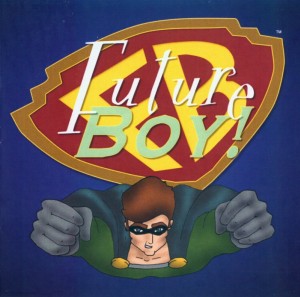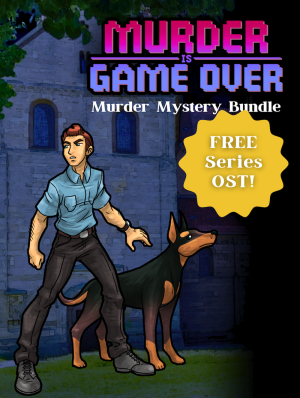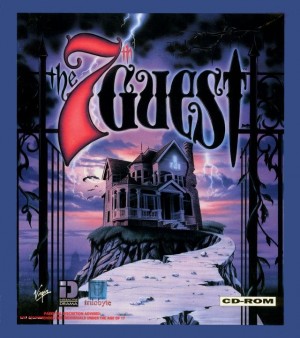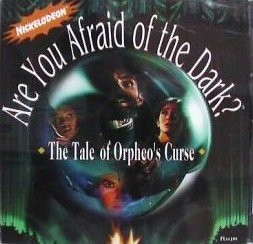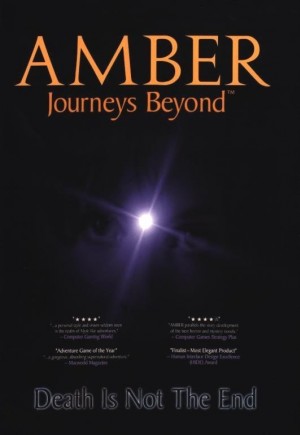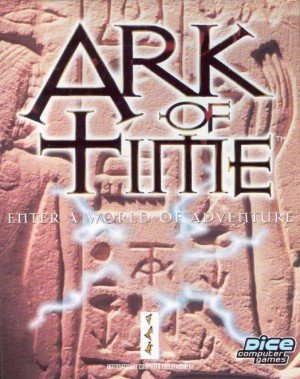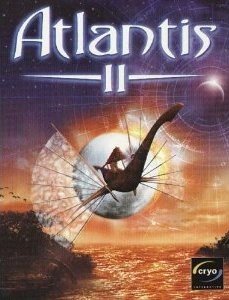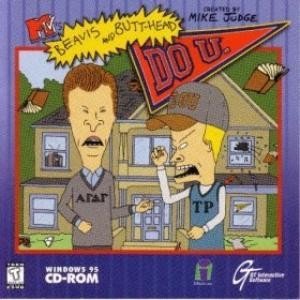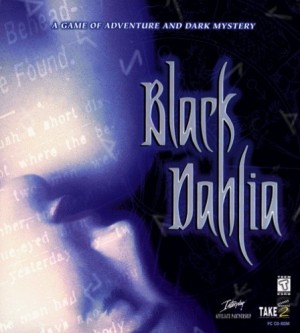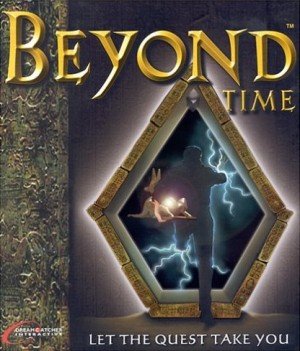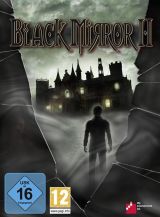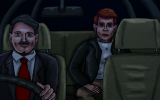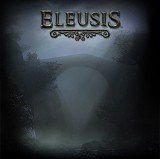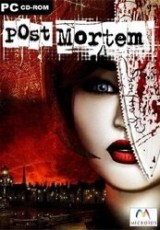Review for Future Boy!
It's a wet, windy night. You arrive home from work to find a padded manila envelope sitting in the mailbox. Nestled inside is the Future Boy! game you've been waiting for, direct from General Coffee Company Film Productions in Canada. You eagerly rip through the shrink wrap to find a nicely silk-screened CD displaying a Superman-esque FB insignia. Not bad looking for an independent production.
> Install game
You pop the CD into the drive. The game installs easily, along with the Hugo engine that was used to create it. After perusing the manual / Rocket City newspaper in the game directory, you feel ready to embark on this adventure… but still a little nervous. You're a big fan of adventure games, but you're used to graphics, voice acting, and a point & click interface. Do you have what it takes to play a text adventure? Can you really be trusted to do all that reading?
> Play
You launch the game and are surprised by a burst of catchy music. Future Boy is flying straight toward you, arms outstretched, hair jauntily waved, square jaw set in a confident grin. Music? Animation? But… but… isn't Future Boy! a text adventure?!
Yes, dear readers, it is—but this isn't your typical text adventure. If you're having visions of mainframes and twisty little passages all alike, check your prejudices at the door. In their debut game, the General Coffee Company has created a work of interactive fiction for today's short-attention-span audience, complete with graphics, animation, music, ambient sounds, and voices. Oh yeah, and text.
The game's premise is one that any single person living in a big city will relate to. Finding yourself unable to meet the rent with your job as a delivery person for the Rocket City Laundry, you have been forced to take in a roommate. That roommate is Frank Bruska, a broad-shouldered stud with an easy-going attitude and a messy habit of trailing cereal all over the floor. As the game opens, you have just woken up to find a strange green isotope radiating from behind the bathroom shower curtain. This discovery leads to the revelation that your unassuming roommate Frank is, in fact, the local superhero—Future Boy!
Thus begins what FB's creator Kent Tessman calls an "interactive comic book"—a well-crafted story involving a maniacal super-villain, a knock-out villainess, a prison break, space travel, time travel, a pair of intergalactic bounty hunters, and an evil plot thrown in for good measure. Tension mounts as Future Boy is taken captive by his arch nemesis, Clayton Eno, who then proceeds to take over Rocket City with his eye set on mass destruction. Freeing Future Boy and defeating Clayton Eno are up to you, with help from any of the game's characters you can enlist.
Compared to most of today's adventure game releases, Future Boy! is a minimalist production, but it uses its few assets extremely well. Although the bulk of the story is told in the text, which displays on the bottom half of the screen, the game also has plenty of pictures. These show where you are, who you're talking to, and what you're carrying. A large image of your location is displayed at all times, along with one or two smaller images depending on who's in the room or what you're examining. The text is further supplemented by a few musical themes and plenty of ambient sounds—traffic horns honking, rain drumming against the window, a flying helicopter's blades chopping through the wind. The game even features a few animated cutscenes and some surprisingly good voice acting.
Character portraits are shown for all the characters except the one you control. In the great text adventure tradition, this anonymity allows the protagonist to be whoever you want him (or her) to be. As for the other characters, each has his or her own personality and style. Frank is one of those confident yet truly nice guys I've always wished would sweep me off my feet. Clayton Eno has just the right mix of over-the-top evil, humor, and humanism that he stays interesting, in spite of his antagonistic role. Priscilla, Eno's one-time girlfriend and the game's obligatory bombshell, has a sarcastic wit that furthers the game's edgy tone. The cast is rounded out with two suspicious visitors from Frank's home planet: Bob Finger, a chain smoking, trench coat clad curmudgeon, and Gorrd, a giant green lizard who wears a fedora.
The writing is sharp and entertaining. I expected to have to read through paragraph after verbose, boring paragraph, but this is exactly what Future Boy! manages to avoid. The text gets right to the point, and at times, it's really funny. Pop culture references and interactive fiction in-jokes keep the text fresh and surprising, and the occasional footnote (an optional line or two that you can choose to view at certain points in the story), provides an extra punchline without cluttering up the screen.
At times I did find myself skimming, but the game never penalized me for having an attention span the size of a thumbtack. Future Boy! is very forgiving of lazy readers. Each time you load a saved game, an amusing recap fills you in on what's happened so far. No idea where the exit is? Just type a direction, and if you can't go that way, the game will tell you which way you can go. If you ever get confused about what exactly you're trying to accomplish, type "goals" and the game will remind you. Even the text parser has been tailored to the impatient player. If you don't feel like typing, you can select verbs from a mouse-controlled menu instead. And if you're stuck, look no further: FB has a hint system built in.
Where Future Boy! really shines is its story, and for good reason. Tessman's previous credits include the critically acclaimed independent film Apartment Story, and FB started out as a screenplay as well. As I played the game, I could imagine it as a cartoon or even live-action feature film. The story has all the elements of a big-screen success: good guys, bad guys, humor, sharp dialogue, and an in-depth plot that gradually builds to the action-packed climax. Near the end, it takes a subtly introspective turn, posing questions about who the real hero is and what makes a hero in the first place.
Future Boy! starts out extremely linear but becomes increasingly open as the story unfolds. This progressively loosening structure gives the player a chance to get comfortable with the interface before being fully released into this unfamiliar type of adventure. Unfortunately, once the story became less linear I found myself relying on the in-game hints way too much. In most cases, I probably could have figured out what to do next on my own, but there were a few things I would never have thought of—not because they were illogical, but because my mind just wasn't going in the right direction. Unlike in a graphic adventure, where the character's interactions are fairly limited by the icons and hotspots the game provides, this text adventure has a far larger scope. You can try anything out on the text parser, no matter how random, and while many of your commands will be fruitless, occasionally you'll hit exactly what the game has been waiting for you to do.
The majority of FB's puzzles are inventory-based, and most (if not all) are very well integrated into the story. One particularly clever task involves hacking into Eno's horribly out-of-date computer. This may be intimidating for players who aren't familiar with DOS or other command-line platforms, but the hint system should get you through it. It's a great challenge that makes sense in context, while at the same time poking reverent fun at the genre's technological roots.
In addition to the game's "official" puzzles, sometimes communicating with the text parser is a challenge in itself. FB's parser seems pretty intelligent—at least, it's a lot less frustrating than I remember Zork and some of the early Sierra games being—but there is still a fair amount of entering synonyms and grammatical variations as you try to zero in on what the engine understands. The tiered hint system's cleverly-worded clues nudge you in the right direction without revealing too much, so even getting a hint exercises your brain. The game also keeps you guessing by providing objects that ultimately aren't useful, and even by giving fake hints. While not exactly puzzles, these additional interactions help keep the game challenging and the world fun to explore.
To play Future Boy!, I alternated between a Dell desktop and an iBook. The game runs well on both platforms and the saves are interchangeable. In addition to Windows and Mac, FB also runs on Linux, Palm, BeOS, and Pocket PC. (A full list of system requirements is available on the developer's website.) Even better, installers for all of these platforms, along with the Hugo engine itself, come on the same CD.
Overall, Future Boy! is stable and bug free—especially impressive, considering the game's non-linearity and the text parser's open-ended nature. I only hit one snag. A character that was supposed to be following me actually wasn't, and I needed him to follow me in order to solve a puzzle. I had to try a number of random commands in random orders to finally get him to follow, and I still don't know exactly what triggered this. But as this problem only happened once, and it could easily have happened so much more, I'm happy to overlook it. Future Boy! was made by a very small team, yet it seems to have gone through an enormous amount of testing. Big commercial developers could learn a thing or two from these guys.
When I reached the end of the game, I learned that I'd finished in just over six hours. Future Boy! seemed longer than this, and I suspect some of my backtracking to saved games wasn't included in the tally. (Don't worry, no dead ends. I just have a habit of going back to earlier saves when I find myself stuck in a game.) My second time through, knowing exactly what to do and barely reading the text as I did it, took nearly two hours, which confirms to me there's quite a bit of meat here. It's not as if the story is simplistic. In fact, the game kept surprising me by introducing yet another challenge just when I thought I had reached the end. FB's storyline easily rivals those of the graphic adventures I've played lately, and if the game were fully animated instead of text-driven, I bet it would be at least two to three times longer.
Even after you've completed the game, Future Boy! gives you a few more things to keep you busy. There's an option to turn on the director's commentary—a great reason to replay. During this commentary, Tessman and other members of the FB team give insight into various "making of" aspects of the production. The CD also includes a bunch of extras, including a PDF art book that shows the evolution of the graphics from concept sketches to completion, FB wallpapers and posters, and promotional banner ads, teasers, and trailers. For those aspiring game designers out there, the CD also includes tools to get you started with the Hugo engine, such as a sample game that illustrates what Hugo can do, a resource library, and an empty game that you can build onto.
Future Boy! is available from the developer's website with two price options—$19.95 for just the CD in a paper sleeve, or $24.95 for the CD in a jewel case with full-color art and a four-page insert. My review copy included the jewel case, and as someone who likes games to look pretty on the shelf, I think it's worth the extra five bucks. The website also features FB merchandise, from tee-shirts to tote bags, and for those who like to try before they buy, a demo is available for download.
Still not sure if Future Boy! is for you? Get this—when I was first offered the opportunity to review this game, I skimmed the press release and agreed without even realizing I was signing on to play a text adventure. I didn't pick up that key piece of information until I read the press release a second time. This just goes to show what a lazy reader I am. Yet FB turned out to be one of my most memorable gaming experiences all year. When I think about what makes this game great, the story, the images of people and places, and even the sound effects play back in my mind. The text itself is so far in the background it's practically invisible, so well put together it ceases to be words and becomes, instead, a world. Such a transformation is not easy to accomplish, in any genre. Kudos to General Coffee Company Film Productions for getting it right.


